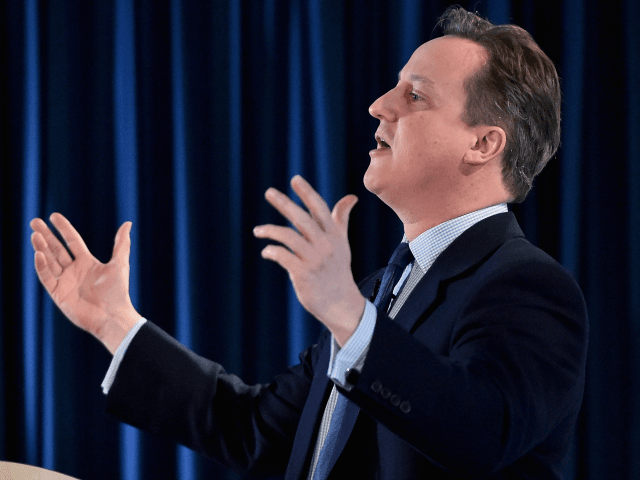Pro-European Union (EU) campaigners have let slip that David Cameron’s deal, being sold to the British electorate as a fundamental renegotiation of EU membership, is in fact nothing more than a rebranding exercise for which Europhiles must “grit their teeth and pretend that he has done a substantial job”.
When Prime Minister Cameron returned from the negotiating tables of Brussels some weeks ago he claimed victory announcing that he had secured for Britain new and exclusive membership terms of the EU. Now, however, the deal has been analysed by campaigners from the Project for Democratic Union (PDU) — a pro-EU think-tank which makes the case for full political union — and their verdict is rather less enthusiastic.
Writing for EurActiv.com, both the head of the PDU’s London office and a policy officer at the same institute have concluded there is nothing of substance to Mr. Cameron’s renegotiation agreement, describing it as “the point at which politics is completely supplanted by political communication”. They explain:
Since Cameron’s announcement of the June referendum, politicians across the UK and the rest of Europe have taken to the airwaves to attest to the seismic changes that have been made, announcing that the EU is now fit for continued British membership. Some, including Angela Merkel, have gone so far as to suggest that Cameron’s reforms will not only be good for Britain but for other member states as well.
None of this, of course, is in any way true. The concessions that Cameron claims to have won are entirely cosmetic, if that: many, such as cutting regulatory red-tape and the involvement of national parliaments in law-making, were already permissible under treaty law or form part of the European Commission’s current legislative plan; others, such as welfare support for intra-EU migrants, tinkered at the margins of the issue whilst failing to alter anything substantial.
Given that the first stated principle of the PDU is to create “a new, more powerful and more democratic Europe”, one might have expected it to stay silent during the referendum process in the hope that the EU would survive intact, but the authors of the piece could not hold their tongues. Stating that the process was “never about any problems with the state of Britain’s EU membership, but rather a haphazardly choreographed attempt to manage the divisions within the British Conservative Party”, they added:
Having enthusiastically supported Britain joining the European Economic Community in the early 1970s, the Tories have since developed a rabidly Eurosceptic tendency that has come to threaten party unity. Cameron’s decade-long tenure as Conservative leader has been marred by near-continual disquiet over Europe, always an ominous background noise but now threatening to drown out all else…
…Having conceded to rising Eurosceptic sentiment in his own party and the British public more widely for over five years, he could not be seen to support continued EU membership in its current form; however, it was also abundantly clear that other European countries had no appetite for British special pleading, beset as they were by a chain of crises and impatient with Cameron treating European Council meetings as a series of domestic media opportunities rather than as forums for serious diplomacy. There was only one solution: to launch a ‘renegotiation’ that would change next to nothing, but sell it as a wholesale rewrite of Britain’s membership conditions.
Even after exposing what they identify as the charade of reform, they still conclude by urging “anyone with an interest in the European order” to hide their true feelings and back Mr. Cameron’s Remain campaign, even those those like themselves “who hold nothing but contempt for his rebranding exercise”.

COMMENTS
Please let us know if you're having issues with commenting.